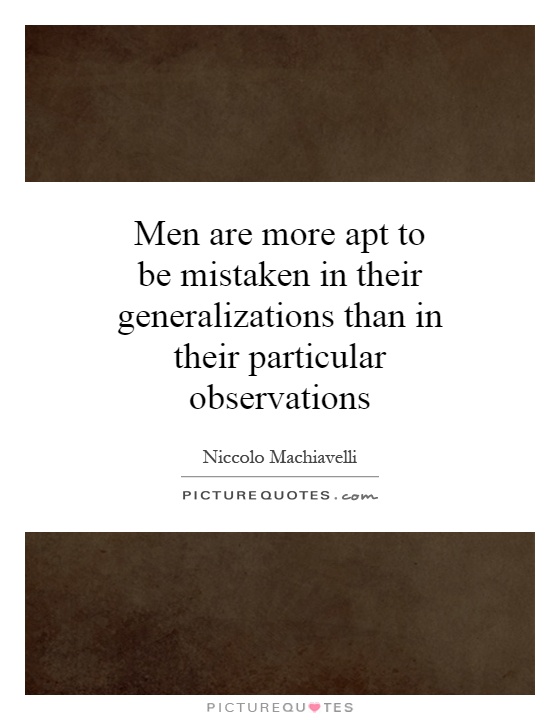Men are more apt to be mistaken in their generalizations than in their particular observations

Men are more apt to be mistaken in their generalizations than in their particular observations
Niccolò Machiavelli, the renowned Italian philosopher and political theorist, is often associated with the idea that men are more apt to be mistaken in their generalizations than in their particular observations. This concept is deeply rooted in Machiavelli's belief in the importance of practical experience and empirical evidence over abstract theories and assumptions.Machiavelli's most famous work, "The Prince," is a prime example of his emphasis on the importance of particular observations over generalizations. In this treatise, Machiavelli provides practical advice to rulers on how to maintain power and control in a political environment characterized by deceit, treachery, and constant power struggles. Rather than relying on abstract principles or moralistic ideals, Machiavelli argues that rulers should base their decisions on a careful analysis of the specific circumstances they find themselves in.
One of the key themes in "The Prince" is the idea that rulers should be flexible and adaptable, willing to change their strategies and tactics based on the particularities of the situation they are facing. Machiavelli warns against relying too heavily on generalizations or preconceived notions, as these can lead to costly mistakes and ultimately undermine a ruler's ability to maintain power.












 Friendship Quotes
Friendship Quotes Love Quotes
Love Quotes Life Quotes
Life Quotes Funny Quotes
Funny Quotes Motivational Quotes
Motivational Quotes Inspirational Quotes
Inspirational Quotes